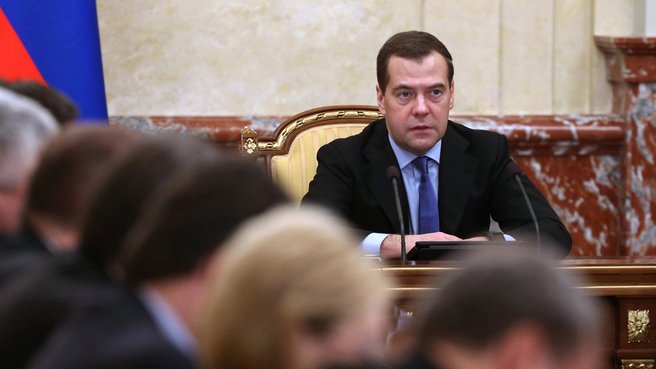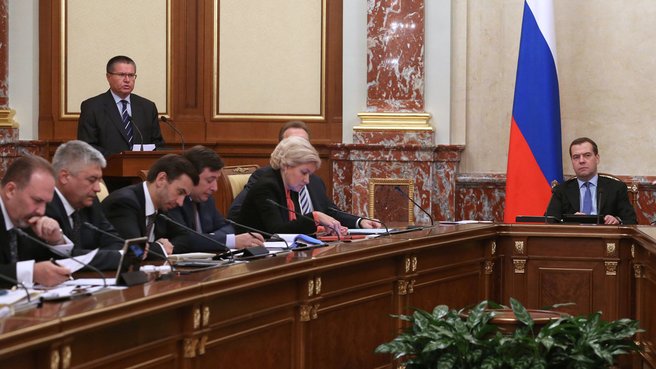The main item on the agenda is the readiness to move to a contract system of state procurement.
Dmitry Medvedev’s opening remarks:
Good afternoon, colleagues. We have a number of high-profile issues on our agenda today. The first one I would like to single out seems technical but, in fact, is very important. It concerns our readiness to move to a contract system of state procurement. State procurements are an important tool which helps the Government to carry out state policy in many industries. As you all know, a new federal law on the contract procurement system will come in effect on 1 January. It will replace Law No 94, which we are all very familiar with. This law has received much criticism. At times, this criticism was misplaced, but mostly it was well-founded. Numerous amendments were introduced to it. Still, the decisions that were taken were necessary, as the state procurement system that had formed over time was flawed and the majority (over 80%) of our people consider it to be inaccessible and unjust.
But emotionally driven assessments, important as they may be by themselves, are not to play any significant role here, as it is essential to create a more efficient and transparent system. The new law on the contract procurement system, subject to debates and opposition since the very beginning, is designed to achieve it. The law has been the focus of a very heated debate, and businessmen, experts and concerned parties have had a say in its development.
Dmitry Medvedev: "The decisions that were taken were necessary, as the state procurement system that had formed over time was flawed and the majority (over 80%) of our people consider it to be inaccessible and unjust."
As a result, we have got a document that regulates the procurement cycle in its entirety. By that I do not mean to say that this is an ideal document, as no document ever is. But this is a more comprehensive document which enables us to draw up procurement plans for the coming year and for three years to come in accordance with the budget estimates, and to choose the optimal product in terms of its price and performance. The document also sets out accounting regulations and outlines the principles of public monitoring.
As I already said, this should help us make state expenditure more efficient, which is always important regardless of the budget volume. And this importance is magnified by the current state of our budget, which is very tight. The funds that are saved can be channeled into other areas and spent on other projects which require them. One area of note in this respect is the social sector. In addition, the transparency in the procurement system will make it possible to stimulate the demand on innovative products and services and promising new technologies by making the system more open, and to combat corruption, which is a constant plague.
We also hope that the new system will be more accessible for small businesses. In accordance with the law, small-sized firms should feature in no less than 15% of the state and municipal procurement tenders. If you like, it should be a sort of a state investment in the development of a private initiative.
I would like to stress that the new elements introduced by the law have been tested in five Russian regions with support from experts of the Open Government. The results should be summed up. However, for the law to be fully effective – and this is the reason why we have come here today as we have to work out the preparative stage – we need to pass over 50 acts of Government prior to 2015. Half a year ago, I approved the relevant work plan. Over 40 subordinate acts of the Government and federal agencies are to be passed by 1 December. Mr Ulyukayev will report on this.
Today we will also consider a number of other topics, including the draft Federal Targeted Programme on the Economic and Social Development of the Far East and the Baikal Region. The programme is designed to solve certain issues, although not all, including those related to the transport and power. I also hope that it will contribute to improving the regions’ investment climate.
Yesterday I chaired a conference call that focused on the readiness of our utility and power facilities for the winter. Today a report will be given on this, an issue of extreme importance, and we should all, within our area of competence, follow up on it and take relevant action. I spoke about this yesterday and I say again today: the debt that our utility facilities have incurred on fuel and power energy has increased four times recently. This is unacceptable and should be rectified.
Let us now turn to other items of today’s agenda.
<…>













